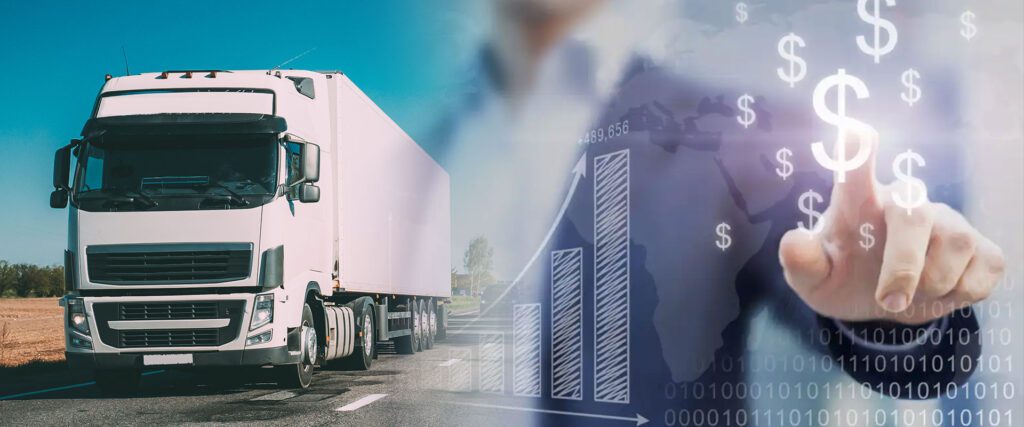It is essential for every trucking and fleet operating company to have complete details of their fleet costs. If they can’t measure their fleet costs, they won’t be able to improve it. Fleet-owning companies can only start saving on their fleet costs once they know where they are being spent.
Knowing the costs of fleet business is the first step towards maximizing profit, which is the ultimate objective for owners and fleet managers. Determining the fleet costs enables the fleet operating businesses to optimize fleet performance and profits.
To get started, it is vital for fleet managers to know about the total cost of ownership (TCO). TCO refers to the total cost of the vehicles starting from purchasing the vehicles to maintenance and operation.
In this blog post, we have given a detailed guide on how to calculate the fleet costs for your trucking and fleet business. But, before that, fleet managers should know why calculating fleet costs is essential to your fleet management.
Why Is It Important to Calculate Fleet Costs?
Most businesses, including trucking and fleet-operating companies, found 2020 to be extremely challenging, to say the least, with global pandemic wreaking havoc on the whole transportation and logistics industry.
In such circumstances, it is recommended to take a more careful approach to spending. Businesses can only tend to save more when they know how to measure the costs and expenses. Knowing why to calculate fleet costs happens to be a significant decisive factor for fleet managers. That can help them improve the performance of their fleet.
Calculating fleet costs can help fleet managers in several ways, such as planning and budgeting, fleet analysis, fleet selection, fleet leasing, and fleet lifecycle management.
What Factors to Consider When Calculating Fleet Costs?
You would be surprised to know that there is no specific formula to calculate fleet costs. Having said that, there are some standard fleet costs that you should include while calculating your costs.
Also, it is recommended to keep a close eye on all your costs while calculating fleet costs. The reason we pay so much emphasis on this is because even a small error or misjudgment can lead you to misleading information about the actual fleet costs, thus leading to poor financial decisions.
Below, we have outlined some of the factors every truck owner and fleet manager should consider when calculating fleet costs.
Acquisition Costs
Acquisition cost refers to the cost of acquiring (purchasing) the vehicles and operating them. The majority of fleet-owning businesses dealing in small and medium-sized fleets tend to overlook the capital cost, especially those that have acquired their fleets by paying in cash.
However, we would not encourage fleet companies to do that. It is significant to calculate capital costs as it helps you determine how things would have been for your business if you had utilized the funds differently.
When calculating the capital costs, you will see that the larger the fleet size, the lower the cost per unit. This happens because large fleets usually are able to do good bargaining with the deals and can purchase the vehicles at comparatively lower prices.
On the other hand, small and medium-sized fleets can also benefit from economies of scale by regularly following preventative maintenance or implementing an effective fleet safety program.
Depreciation Costs
Assets are meant to depreciate over time. Trucking and fleet-operating companies know that the value of their vehicles begins to depreciate right from the time of purchase. Fleet managers should know that it is extremely vital to know and manage the vehicle’s value in the fleet business.
Knowing and managing the vehicle’s value can help fleet managers determine its current worth in the open market and the profit they can make from selling the vehicle before the operational cost surpasses the revenue.
Fleet managers can determine the fair wear and tear of the vehicles when they incorporate depreciation costs into fleet cost calculations. This can further help them determine the extent of their vehicles’ degeneration.
Here’s a useful tip: when you go to the market to purchase a new vehicle, you should opt for the one with a lower depreciation rate as it will guarantee you a better and reasonable price when you want to sell it.
Maintenance Costs
It is a no-brainer that the maintenance cost of the vehicle is directly proportional to vehicle depreciation i.e. the more the vehicle will age, the more it will require maintenance. According to a 2017 study, it was revealed that the maintenance costs of a vehicle that has been in service for a year amounts to $14.80.
Surprisingly, the maintenance costs increases subsequently. A vehicle that has been in the service for three or more years would require at least $68.62 to maintain it.
However, it would be wrong to assume that vehicle aging is the only contributing factor to maintenance costs. There are other aspects that may also increase maintenance costs. From vehicle health to driving behaviors such as reckless braking, overloading, and over-speeding may also lead to raising maintenance costs. It is also recommended to include the downtime costs while calculating the fleet costs.
Conclusion
As we discussed above, there is no particular formula to calculate fleet costs. Acquisition (capital) costs, vehicle depreciation costs, and maintenance costs only serve as the tip of the iceberg. Several other factors should also be included while calculating fleet costs such as fuel costs, insurance costs, licensing and tax, residual value, and many more.
Truckers and fleet operating companies can seek technology such as advanced fleet management software and cloud-based TMS software to help reduce costs associated with fleet operations. The lower the operational costs, the higher the returns.
We do realize that calculating fleet costs can be an overwhelming process for the fleet managers. What’s more, it can also be time-consuming and task-demanding. However, most fleet-owning and trucking companies resort to technology and telematics to perform fleet costs calculations.



